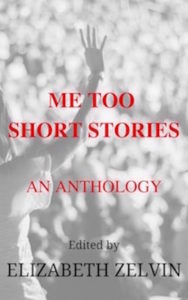Women crime writers have reacted in outrage to the Staunch Book Prize, a UK award for “a novel in the thriller genre in which no woman is beaten, stalked, sexually exploited, raped or murdered.” Internationally acclaimed author Val McDermid’s comment: “Baby, bathwater.”
One of my first thoughts was that if you eliminate fiction about crimes against women, you’re left with male on male violence—war stories are the ultimate example—and crimeless fiction. That’s not true. The 2018 prize went to Australian writer Jock Serong’s On the Java Ridge, described as a “literary political thriller” that presents an “anguishing portrayal of world refugee crises.” It sounds like a fine book. Reviewers also called it “dystopian,” a “novel about sibling rivalry, family, masculinity, and the game of cricket,” and a “noir tour de force.” In other words, it’s the kind of book that male writers write that absolutely must be balanced by crime fiction in women’s voice about women’s experience.
 This is precisely the reason I decided readers needed my new anthology, Me Too Short Stories. The subject—crimes against women, tales of retribution and healing. Full disclosure: I needed such an anthology, because neither my usual short story markets such as Ellery Queen’s and Alfred Hitchcock’s Mystery Magazines nor the noir e-zines that published darker fare were likely to want my latest story, “Never Again.” Why not? Because the first-person protagonist is a molested child, a fourteen-year-old girl whose father has been raping her since she was four. As a therapist for thirty-five years, I can assure you this is not uncommon.
This is precisely the reason I decided readers needed my new anthology, Me Too Short Stories. The subject—crimes against women, tales of retribution and healing. Full disclosure: I needed such an anthology, because neither my usual short story markets such as Ellery Queen’s and Alfred Hitchcock’s Mystery Magazines nor the noir e-zines that published darker fare were likely to want my latest story, “Never Again.” Why not? Because the first-person protagonist is a molested child, a fourteen-year-old girl whose father has been raping her since she was four. As a therapist for thirty-five years, I can assure you this is not uncommon.
What we need to object to is the graphic, lovingly depicted presentation of violence toward women—the serial killer’s point of view, the description of a rape, the beauty of blood spatter and a victim’s terror. Instead, e-zines whose guidelines invite submitters to bring on the horror, crudity, and gore, have a single caveat: No child abuse. (Oh, and no animal abuse, but that’s another story.) Noir editors seem to think avoiding the topic of child molestation entitles them to a white hat in the matter.
The Me Too Short Stories call for submissions—to women authors only, because I wanted maximum authenticity of voice—mentioned only “crimes against women.” Yet almost half of the stories in the anthology involve children. It’s not surprising, considering that child abuse is the seed from which adult violence grows in the form of both abusers and victims. Children are vulnerable by definition. Their protectors may be absent or neglectful or impaired. Or these protectors may themselves be at the mercy of those who have physical, emotional, social, or economic power over them.
When I added a second protagonist to my “Never Again” story, I made her an adult married to an abusive alcoholic. But her secret “me too” story started at age nine, when the preacher’s son molested her. Now he’s a deacon in the church the whole town attends, and her shame is expressed in fat and compulsive eating. This too, all of it, happens in real life.
Me Too Short Stories: An Anthology was created to give me and the other contributors the chance to write about violence toward women and girls not with loving emphasis on our pain and helplessness but by making them the protagonists, giving them a voice, showing the reader their courage and survival. That is how I think crime writers, men and women, can contribute to new attitudes toward violence against women.
Elizabeth Zelvin is the editor of Me Too Short Stories: An Anthology. She is also author of the Bruce Kohler Mysteries and the Mendoza Family Saga, a Jewish historical series, and editor of Where Crime Never Sleeps. Her short stories have been nominated three times each for the Derringer and Agatha awards and have appeared in Ellery Queen’s Mystery Magazine and Alfred Hitchcock’s Mystery Magazine among others. Her author website is http://elizabethzelvin.com. Liz is a psychotherapist who lives in New York and treats clients online at LZcybershrink.com.
